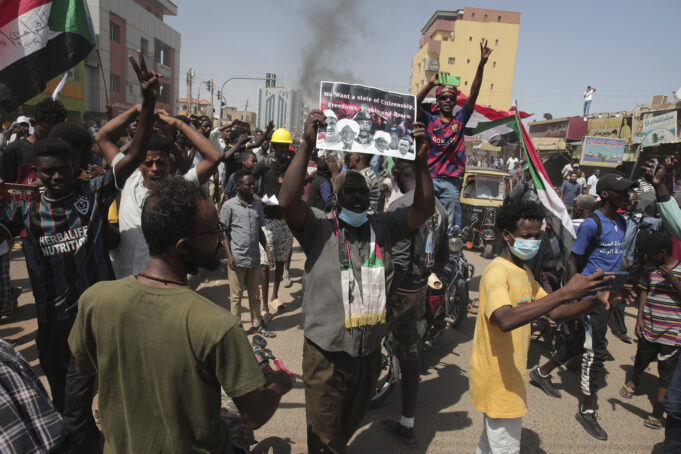Knee-deep in Sudanese political formulations is how I’m defining my 2021-2022. While I’m writing this, my wife Zakia who is from Sudan, is appearing on Al-Watan TV from Turkey. In Arabic, she is explaining her organization’s response to the announcement by Sudanese parties of an initial political framework agreement. Her organization is called “Sudan Future Campaign” (SFC).

They say initial or the first phase because of the October 2021 military coup leaders’ involvement. This includes General Abdel Fattah Al-Burhan and his partner General Mohamed Hamdan Dagalos’ (also known as Hemedti) and his dreaded Rapid Support Force (RSF).
Remarks made at the UN Security Council briefing by the U.S. on Sudan and South Sudan, commended the inclusive “dialogue in good faith and to establish a civilian-led transitional government as soon as possible.” The U.S. Mission to the UN stated, “We fully support the UNITAMS-AU-IGAD (United Nations Integrated Transition Assistance Mission In Sudan, African Union, Intergovernmental Authority on Development) role in facilitating the next phase of dialogue and concluding negotiations.” IGAD is an eight-country trade bloc that includes, Ethiopia, Kenya, Sudan, Somalia, Djibouti and Uganda.
Zakia is her organization’s deputy president and posted their statement, which asked the question, “How do we hold elections and ensure their success in this unstable atmosphere?” Another question the organization asked is: How can free and fair elections take place when “the state is still in their (military’s) grip?”
Documentary filmmaker, journalist and Pan-Africanist, Al-Sanosi Adam, has two graduate degrees in media studies from the Berkeley School of Journalism. It seems like each time we seriously discuss the dynamics that make Sudan work, or its challenges, it’s while I’m interviewing him. This time it’s from his new residence in Nairobi, Kenya.
Al-Sanosi Adam said he moved from Khartoum to the capital city Nairobi because his media company “was just going down really fast.” He said, “We had to sell equipment (just) to pay rent. So, I looked around and thought of moving somewhere like East Africa. I looked at Ethiopia, but it was going through war. I looked at Uganda but not much opportunity for journalists or filmmakers, so I decided to move to Nairobi.”
Nairobi is known to be the media hub for journalists in East Africa and there are a lot of international media houses (companies) in Nairobi, Al-Sanosi Adam told Africa Watch. “I moved here while I was still working for DW Africa link, which is the Germain news service. So, I also applied to BBC, Al Jazeera, Voice of America. I had interviewed with VOA and they were not looking for a full-time anything, but they welcomed the idea of me (freelancing) pitching stories.”
Concerning Sudan, he said one of his freelance positions requires him to stay in touch with the country and keep tabs on the political dynamics, the armed groups, and the peace agreement. “So I’m very aware of what’s happening,” he said. “The most recent thing in the political dynamic is the new deal that is in play between Freedom and Justice Coalition and the military,” which he said, “is to be signed.” Al-Sanosis Adam said he believes, “the deal will somehow allow civilians to form a transitional government.”
Zakia begs to differ. She told Al-Watan TV, in part of a 15-minute in-depth interview, “We see that the Forces of Freedom and Change reneged on their covenant once again by signing this agreement, by bypassing many of the components and political organizations that make it up, without obtaining their consent … .” She also explained that a lack of consensus is problematic and deepens the division of Sudanese society.
According to Axios, the agreement could be a first step but does not have the support of several key players. One thing this imperfect agreement did is reveal the differences between military head Al-Burhan and Daglo of the Rapid Support Force. According to Axios, Daglo, who is Burhan’s deputy, said the Oct. 25 coup was a “political mistake.” Burhan disputed his deputy’s characterization and insisted the coup was a “necessity.”
Follow @JehronMuhammad on Twitter













